The First Cultures
History
agriculture

The science of cultivating plants and livestock. Agriculture. In History, agriculture refers to the practice that allowed humans to settle in one place, grow food, and build civilizations.
civilization
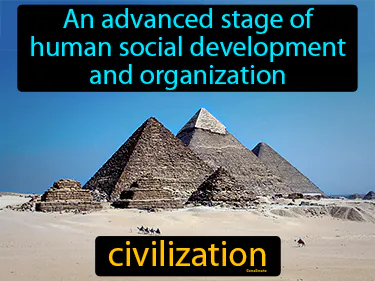
An advanced stage of human social development and organization. Civilization. Civilization is when people create complex societies with cities, governments, and shared culture.
domestication
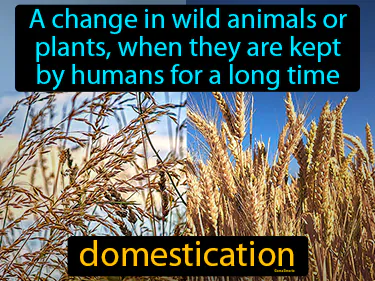
A change in wild animals or plants, when they are kept by humans for a long time. Domestication. Domestication is the process by which humans have tamed and bred wild species for farming, companionship, or work throughout history.
flaking
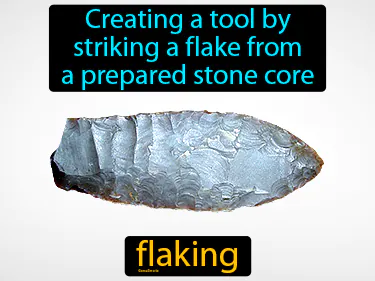
Creating a tool by striking a flake from a prepared stone core. Flaking. Flaking is an ancient technique used by early humans to shape stone tools by chipping away small pieces from a larger rock.
hunter-gatherers
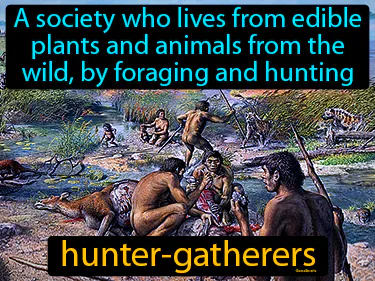
A society who lives from edible plants and animals from the wild, by foraging and hunting. Hunter-gatherers. Hunter-gatherers were early humans who survived by collecting wild plants and hunting animals instead of farming.
migrate
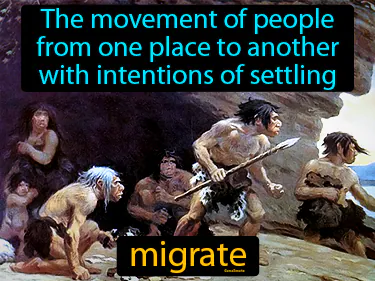
The movement of people from one place to another with intentions of settling. Migrate. In History, migration refers to the relocation of groups or individuals across regions or countries, often for better living conditions or to escape conflict.
Neolithic Era
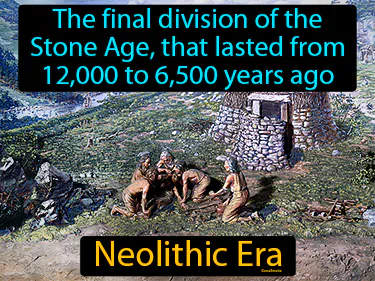
The final division of the Stone Age, that lasted from 12,000 to 6,500 years ago, is the Neolithic Era. It was a time when humans began farming, building communities, and domesticating animals.
Paleolithic Era
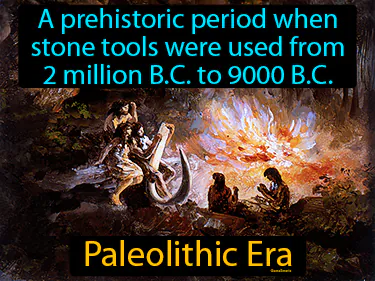
A prehistoric period when stone tools were used from 2 million B.C. to 9000 B.C.. Paleolithic Era. The Paleolithic Era is the earliest phase of human history when people used simple stone tools.
specialize
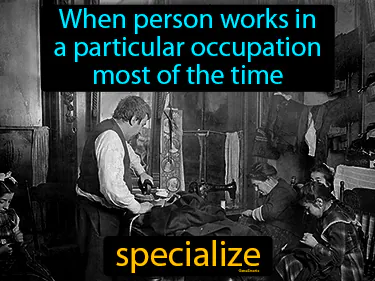
When person works in a particular occupation most of the time, specialize. In History, specialize means focusing on studying a specific time period or event deeply.
surplus

A situation in which the quantity of a good supplied is more than the quantity demanded. Surplus. In history, surplus allowed early civilizations to store extra food, leading to population growth and the development of cities.

